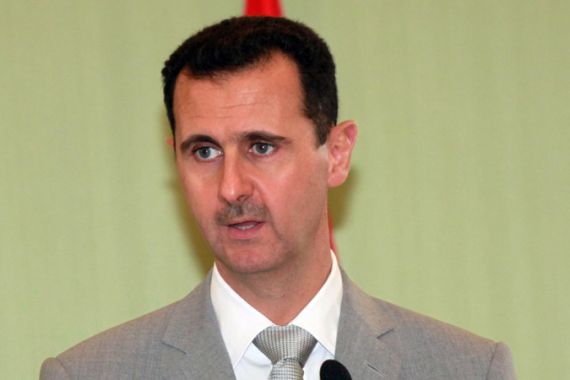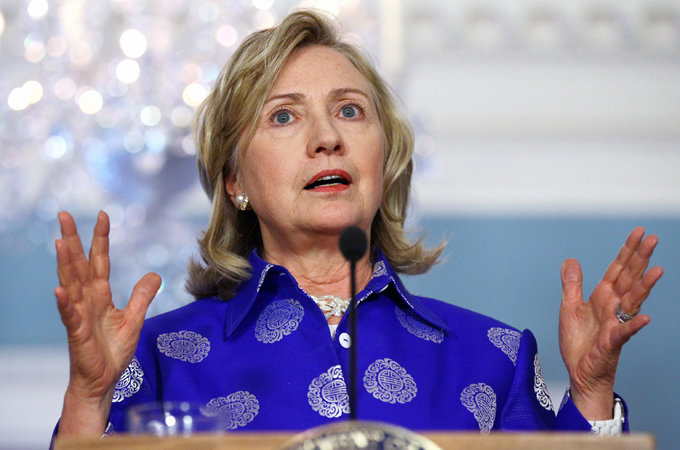US: Assad has lost legitimacy to rule
US to work on building international consensus for action, as Syrian uprising death toll reaches 2,000.

 |
| Hillary Clinton, the US Secretary of State, says the Syrian regime is responsible for more than 2,000 deaths [AFP] |
Hillary Clinton, the US secretary of state, has said that Washington believes President Bashar al-Assad’s government was responsible for more than 2,000 deaths in the crackdown, repeating that Washington believes Assad has “lost his legitimacy to govern the Syrian people”.
Clinton told reporters on Thursday that moves such as the UN Security Council statement on Wednesday condemning Syrian government violence, as well as further international sanctions, could turn the screws.
“We are working around the clock to try to gather up as much international support for strong actions against the Syrian regime as possible,” Clinton said. “I come from the school that actions speak louder than words.”
Clinton also said it was time for the international community to match its rhetorical outrage “with actions that will send a very clear message to the Assad regime, the insiders there, that there’s a price to pay for this kind of abuse and attacks on their own people”.
Meanwhile, the US extended sanctions against Syria to include a prominent Syrian businessman and member of parliament who it says is a front for the interests of President Bashar al-Assad and his brother.
The move by the US treasury on Thursday marks the fourth round of US sanctions against Syria aimed at pressuring Assad’s government to ease its bloody crackdown against unarmed protesters.
The treasury said it added Muhammad Hamsho and his holding company, the Hamsho International Group, to its sanctions list, which bans US transactions with them and seeks to freeze any assets they may have under US jurisdiction.
It said Hamsho has close ties to the Assad family and has acted as a front for Mahir al-Assad’s business interests.
Previous rounds of US sanctions have targeted the Syrian president and his brother Mahir al-Assad, other top government officials and the security forces.
European Union ambassadors meeting in Brussels on Thursday also agreed to add more names to their Syria sanctions list, but EU officials said they stopped short of targeting the country’s oil industry and banking sector. Dissidents say that would be the only way to effectively choke off funds fueling repression in Syria.
The extent of new sanctions will depend on recommendations from the EU delegation in Damascus and EU states, the EU officials added.